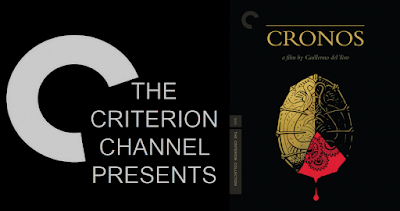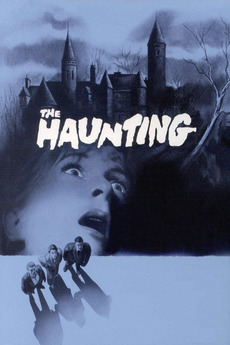For Guillermo del Toro, it has always been about monsters. It’s astonishing watching Cronos, his debut feature, for the first time and seeing how fully-formed he as a director and his particular fascination with monster characters is. He’s always been tying together monstrosity and humanity, and in Jesús Gris we see one of his great illustrations with that: a man who tragically becomes a monster in his pursuit of recapturing his humanity. This might be del Toro’s Frankenstein.
Cronos was one of the last del Toro movies I had yet to see before deciding on it as my Halloween-themed pick this October. It’s themes of immortality and aging intrigued me, its’ elements of vampirism ahead of del Toro’s blockbuster debut of Blade II a decade later, and also the fact it is the only feature-length Mexican movie from this famed Mexican director (his later Spanish-language films, The Devil’s Backbone and Pan’s Labyrinth, were both made in Spain).
It is essentially the story of an ancient scarab, developed centuries ago by an alchemist in search of the key to immortal life, and the old antiques dealer who comes across it in mid-90s Veracruz, himself somewhat longing for youth. The parasitic Cronos device, which soon injects the man and begins to work its’ effects, is being sought after also by a rich though infirm businessman looking to stave off death.
Federico Luppi plays the protagonist, Jesús Gris, undergoing a transformation as a result of his exposure to this object, while Claudio Brook is the dying Dieter de la Guardia with Ron Perlman as his hot-tempered American nephew and enforcer Angel. Most of the movie is spent between these three, attempting to gain or maintain control of this scarab that seems to be more of a burden than a blessing. Each actor does a good job, but Luppi especially deserves credit for rising to the task of such a physically and psychologically demanding character, with all the pathos of Frankenstein’s monster and yet a creature quality all his own driven by a desire for the youth Cronos can give him. Not long after the initial taste, he finds himself attaching it to his chest at night like a leech.
It is certainly a revealing metamorphosis that he undergoes from this, involving the disappearance of wrinkles, reappearance of hair, and a renewed sexual vitality, but also a paleness of the skin and a craving for blood, which he kind of amusingly decides to brush off. What can’t be so ignored though is the effect of sunlight on his skin, which burns and leaves further permanent marks. The only thing to be done is to sleep in a box. The term is never stated outright, but it’s pretty clear this is del Toro’s take on vampirism, one which ahead of the cultural re-contextualization on vampires, casts them distinctly as tragic creatures more than predators –any sign of the latter is something that horrifies Jesús. In fact, there’s a moment of temptation towards his young granddaughter that he ultimately backs away from in a beat that del Toro and Luppi play with a kind of silent movie gothic theatricality –like something out of the Lon Chaney Phantom of the Opera.
Turning into a vampire is a graphic exercise for del Toro, who also seems influenced here by someone like David Cronenberg in his fixation with Jesús’ body in relation to his transfiguration. Later he peels back a part of his skin, underneath which is a new albino layer that shimmers in the moonlight. It’s not quite as grotesque as The Fly, but it operates under similar principles, especially in del Toro’s visual approach which highlights that, like The Fly, this film is very interested in its’ special effects and make-up, which are very impressive. So too is the films’ general aesthetic. It pretty early on conjures imagery out of Dickens in the elderly Jesús with his granddaughter in a weary old curiosity shop, but then there’s also the vast dark emptiness of the de la Guardia estate that in the later part of the movie resembles the barren apartments from Blade Runner as Jesús and Angel have a similar fight there. The opulence of a party couldn’t be more out of place; things are right with the universe when Jesús is abducted from it.
There are some interesting religious and existential themes that permeate the film, certainly some metaphors that might hint at why Jesús is named as he is. This is a Jesús however deathly afraid of his own mortality, unwilling to give up the scarab, even through his pain and fear, if it means he will die. He escapes death more than once in defiance of the de la Guardias efforts. And death haunts Dieter as well, though Angel, who stands to inherit his uncle’s fortune, is eager for it. del Toro leaves it unclear whether death ultimately claims Jesús or not after his struggle with these fiends is over. As ever, he is unwilling to definitively condemn his monster.
Criterion Recommendation: The Haunting (1963)
I don’t know why it took me so long to get to The Haunting in this series, a movie that I’ve sung praises of for years. Directed by Robert Wise, this adaptation of Shirley Jackson’s magnificent psychological thriller The Haunting of Hill House, is one of my very favourite horror movies because of its’ clever blending of superstition and paranoia. It’s never entirely clear how much of the haunting its’ characters have come to bear witness to is genuine supernatural phenomena or the unreliable emanations of a troubled psyche. The possessor of that psyche, Eleanor Vance, is played to gripping intensity by Julie Harris, in one of the best performances of the horror genre -though Claire Bloom is quite exceptional as well. There’s an undercurrent of sexual tension and queer commentary there too as the movie more openly plays with the sensationalism of ghost stories, whilst presenting a pretty harrowing one itself. A couple scenes from this movie, so well written and intoned, are still chilling -helped along by austere cinematography and deliberately puzzling Rococo set design that creates a claustrophobic mood and makes Hill House itself the most frightful character. One of the all-time spookiest movies for my money, and one that Criterion would do well to acknowledge for the Halloween season.
Support me on Patreon: https://www.patreon.com/JordanBosch
Follow me on Twitter: https://twitter.com/Jordan_D_Bosch
Letterboxd: https://letterboxd.com/jbosch/



Comments
Post a Comment